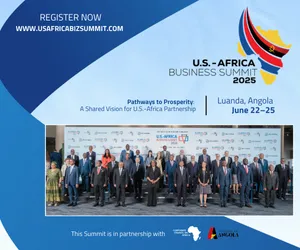During your Africa trip, were you reminded of any particular region 15 or 20 years ago?
Yes, some of the frontier economies that are now opening up more to trade, to foreign direct investments and to capital flows look like what emerging markets were in the early 1990s after the emerging market crisis.
The Latin America of the ’80s saw the beginning of a re-flow of capital to the emerging markets but they were still at the early stages of economic development and still had structural and macro issues to fix. So, yes, 20 years ago, most of the frontier looked like what today’s emerging markets were.
There are still, in this part of the world, countries that are extremely poor. There is a very wide distribution of experiences, so we cannot lump together a continent of 54 countries. Some of them are on the virtuous cycle of better institutions, better governance, better macro, better investment in human and physical capital, better political and social stability, stronger growth and rising per capita income.
But there are other countries that are still experiencing sectarian and religious cleavages and strife, corruption, poor institutions, poor governance, less investment in human capital, poor healthcare infrastructure, slower growth, low per capita income and are still in a trap of poverty and diseases. As you know, it’s not a uniform continent.
When you talk about structural deficits, which ones in particular do you mean?
I would say that for all these countries to grow faster, they have to have more investments in different types of capital: one is institutional capital. This involves sound government, rule of law, transparency, reduction in corruption and so on. Another is infrastructure capital; while it is very important ,of course, it’s not sufficient by itself to generate growth. You need human capital, education, skills, training and so on.
You need physical capital invested into by the private or public, or private and public partnerships. You need to use natural resources, like minerals, agriculture and other capital productively as well and make sure that you don’t get too little diversification. You have to diversify the economy and you also need a fair distribution of the benefits coming from these natural resources otherwise you generate a conflict.
And, finally, financial capital is critical as well. You need access to credit, to banking, especially for small and medium-sized enterprises, for households, microfinance and so on, so you need lots of different types of capital and together, if you have more of them over time and you invest into them, then you get better economic performance.
This was your first trip to Nigeria. What were your impressions?
I had low expectations because usually what you read in the US press about Nigeria is only bad news, violence, terrorism, lots of other bad stuff. I was actually positively surprised. You have a country that has one tenth of the power capacity of South Africa, one quarter or one fifth of the infrastructure of South Africa, and while South Africa is growing barely at 2%-2.5%, Nigeria is growing at around 7% or so.
Of course it’s an unfair comparison because South Africa is a middle-income country while Nigeria has a low per capita income, so usually low per capita income countries grow faster because there is a catch-up of growth. Nigeria has oil and gas and a lot of energy that helps its growth. Since they are doing so well with such little power and infrastructure, some people say that Nigeria could grow by 10% by making the right investment in infrastructure.
What was the highlight of your trip so far, other than the nightlife?
These are societies which are becoming urbanised. These are thriving urban environments where you have good restaurants, good clubs, music venues. You go to a club and hear the same kind of electronic dance music, top 40, that you hear in Ibiza.
And any surprises?
The surprises have been on the upside rather than on the downside. Of course there are tons of challenges in each of these countries but there’s an element of vibrancy that you see both in economies that are wealthier like South Africa or Nigeria but even in a place like Congo.
There is a long list of things that have to be improved in each one of these economies and you cannot take economic success in the future for granted.
I think sometimes there is a little bit of an excess of saying Africa is rising, everything is going well, but that depends on having good sound institutions, good policies, good leaders in the private and public sectors to make them work.
There’s always a risk of slippages and things turning wrong, so I would say one should not take the current success for granted, but overall the surprises have been on the positive.
Want to continue reading? Subscribe today.
You've read all your free articles for this month! Subscribe now to enjoy full access to our content.
Digital Monthly
£8.00 / month
Receive full unlimited access to our articles, opinions, podcasts and more.
Digital Yearly
£70.00 / year
Our best value offer - save £26 and gain access to all of our digital content for an entire year!

 Sign in with Google
Sign in with Google 





